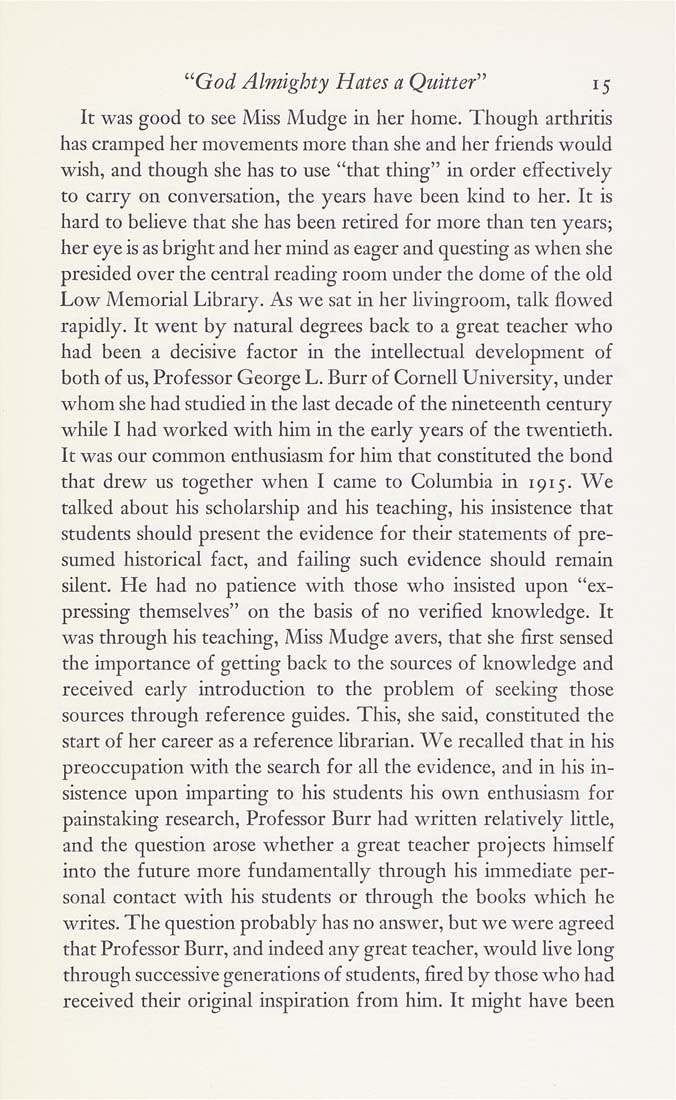Columbia Library columns (v.2(1952Nov-1953May))
(New York : Friends of the Columbia Libraries. )
|
||
|
|
|
|
| v.2,no.1(1952:Nov): Page 15 |

"God Almighty Hates a Quitter" 15 It was good to see Miss Mudge in her home. Though arthritis has cramped her movements more than she and her friends would wish, and though she has to use "that thing" in order effectively to carry on conversation, the years have been kind to her. It is hard to believe that she has been retired for more than ten years; her eye is as bright and her mind as eager and questing as when she presided over the central reading room under the dome of the old Low Memorial Library. As we sat in her livingroom, talk flowed rapidly. It went by natural degrees back to a great teacher who had been a decisive factor in the intellectual development of both of us, Professor George L. Burr of Cornell University, under whom she had studied in the last decade of the nineteenth century while I had worked with him in the early years of the twentieth. It was our common enthusiasm for him that constituted the bond that drew us together when I came to Columbia in 1915. We talked about his scholarship and his teaching, his insistence that students should present the evidence for their statements of pre¬ sumed historical fact, and failing such evidence should remain silent. He had no patience with those who insisted upon "ex¬ pressing themselves" on the basis of no verified knowledge. It was through his teaching, Miss Mudge avers, that she first sensed the importance of getting back to the sources of knowledge and received early introduction to the problem of seeking those sources through reference guides. This, she said, constituted the start of her career as a reference librarian. We recalled that in his preoccupation with the search for all the evidence, and in his in¬ sistence upon imparting to his students his own enthusiasm for painstaking research. Professor Burr had written relatively httle, and the question arose whether a great teacher projects himself into the future more fundamentally through his immediate per¬ sonal contact with his students or through the books which he writes. The question probably has no answer, but we were agreed that Professor Burr, and indeed any great teacher, would live long through successive generations of students, fired by those who had received their original inspiration from him. It might have been |
| v.2,no.1(1952:Nov): Page 15 |







